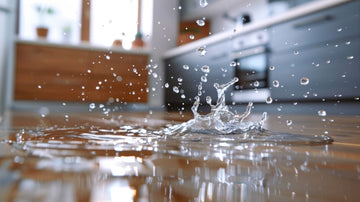In today's fast-paced industrial world, maintaining equipment and ensuring safety is more crucial than ever. Enter the IP67 water sensor, a game-changer in the realm of quality assurance for industries. As technologies evolve, these sensors are becoming indispensable tools for ensuring the longevity and safety of equipment against water damage.

What is an IP67 Water Sensor?
The IP67 rating of a water sensor guarantees that it's both dust-tight and capable of withstanding brief immersion in water. This rating ensures that these sensors are perfect for environments where water exposure is a concern, whether through accidental spills, humidity, or cleaning processes.
Industries rely on multi-device leak detection networks to maintain operational efficiency. The integration of an IP67 water sensor into these systems ensures even greater precision and reliability.
Why Industry QA Needs IP67 Sensors
For Quality Assurance professionals, it's vital to preemptively identify areas of potential water intrusion to avoid costly damages. IP67 water sensors offer advanced leak detection capabilities, signaling issues before they become catastrophic.
By using leak sensors for smart irrigation, industries can effectively manage water resources and safeguard against potential equipment failures.
Benefits of IP67 Sensors in Industrial Settings
Durability and Reliability
The rugged nature of IP67 water sensors ensures that they remain operational even in challenging conditions. This durability translates to fewer replacements and reduced maintenance costs.
For remote locations, such as a remote cabin leak scenario, these sensors offer peace of mind by continuously monitoring and reporting any anomalies without frequent human intervention.
Instant Alerts
An invaluable feature for industry settings is the ability to receive instant alerts upon detection of water. This quick response time can prevent minor issues from escalating into critical problems, ensuring minimal operational downtime.
If readers want to delve deeper into how smart technology enhances water safety, exploring how leak detectors work can provide even more insights into integrating these sensors for maximum efficacy.
How to Choose the Right Sensor
Factors to Consider When Selecting an IP67 Sensor
Not all water sensors are created equal. Industry QA professionals should prioritize sensors based on specific criteria:
- Sensitivity: Ensuring the sensor can detect even the slightest moisture.
- Response Time: Faster response times mean quicker mitigation actions.
- Compatibility: Sensors should be compatible with existing systems for seamless integration.
Understanding leak sensor accuracy helps in making informed decisions regarding which sensor suits the specific needs of a given industrial environment.
FAQ Section

Common Questions About IP67 Water Sensors
1. How does an IP67 rating benefit my industry?
The IP67 rating ensures resistance to dust and immersion in water, making it ideal for harsh industrial environments.
2. Can these sensors integrate with existing systems?
Yes, most IP67 water sensors are designed for compatibility with a range of existing systems.
3. Do they require regular maintenance?
While robust, it's recommended to perform periodic checks to ensure optimal performance.
To grasp the broader impact of smart water leak sensors, consider the advantages of owning one and how it can be beneficial beyond just industrial applications.






